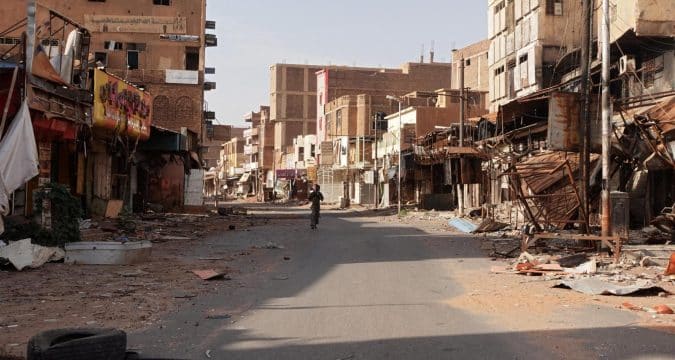
(OSV News): On the first day of talks in Geneva aimed at ending the 16-month Sudanese conflict, Bishop Stephen Nyodho Ador Majwok of Malakal, South Sudan, stressed that addressing the humanitarian situation in the northeast African country cannot not wait for “tomorrow.”
Bishop Majwok warned on August 14 that the conflict which began in April 2023 had created the world’s largest humanitarian crisis and triggered famine-like conditions across the country.
Already weighed down by local challenges, Malakal is also shouldering the burden of new refugees and returnees forced out by the Sudanese war.
“We welcome the peace talks. Sudanese bishops have been calling for inclusive and unconditional dialogue to end the war,” Bishop Majwok said. “The suffering is really terrible. Nobody can wait for tomorrow.”
The war between the Sudan Armed Forces and the paramilitary Rapid Support Forces started in Khartoum, the capital, on 15 April 2023, as a power struggle between the army leader Gen. Abdel Fattah Burhan and the paramilitary commander, Mohammed Hamdan “Hemedti” Dagalo.
Bishop Majwok warned on August 14 that the conflict which began in April 2023 had created the world’s largest humanitarian crisis and triggered famine-like conditions across the countr
According to the International Rescue Committee [IRC], the war casualty estimate is hard to count, with the organisation saying the conflict may have killed between 15,000 and 150,000 people.
More than 10 million people have been displaced, with more than 25 million—half of Sudan’s population—needing humanitarian assistance, according to IRC. Famine and floods are adding to the challenges of displaced people.
In July, the United States invited the fighting sides for talks in Switzerland with the paramilitary side sending a delegation, alongside the African Union, the United Nations and Egypt, but the army said it would not participate in the talks.
“We will not retreat, we will not surrender and we will not negotiate,” Burhan was quoted as telling his troops after surviving a drone attack.
But Bishop Majwok urged all parties to agree to talks to end the conflict, which was already out of control with the people continuing to move within and out of the country.
The suffering is really terrible. Nobody can wait for tomorrow
Bishop Majwok
“They have arrived with nothing. It is a big problem with South Sudan’s hard economic times, but the Church is doing the best it can,” the bishop said.
On August 4, the army and the General Intelligence Service evacuated five Italian nuns, a priest and 20 South Sudanese nationals who had been trapped in Khartoum, the capital, for a year and four months, the Sudanese Armed Forces’ confirmed in an August 6 statement.
The Salesian Sisters [Daughters of Mary Help of Christians] along with a Salesian priest and Christians sheltering with them had remained trapped in Al-Sharaja, an area under the control of the Sudan Armed Forces, but surrounded by paramilitary since April 2023.
The missionaries were living in Dar Maryam, an educational complex housing a kindergarten and a primary school. The religious community hosted dozens of people from the area, including Muslims and Christians, who fled the fighting. Refugees were receiving water from the centre, while the army provided food, medical care and solar power when necessary.
The house has been bombed twice, with intense fighting forcing the community to stay indoors. In December 2023, the International Committee of the Red Cross attempted to rescue the community, but the attempt was abandoned after the paramilitary shot at the convoy.
The Salesian Sisters, who had been in Khartoum for 40 years providing education services, expressed their gratitude in an August 4 statement to the Sudanese Armed Forces for the evacuation.
They and a priest were the last Catholic religious community left in Khartoum.
“They are now out of Khartoum, on their way to Port Sudan, after which they will be free to go anywhere,” Bishop Majwok said.
The bishop also expressed concern over Bishop Yunan Tombe Trille Kuku Andali of El-Obeid, Sudan. The paramilitary, which controls the southern part of the city and western water supply, has increased water shortages. In June, the fighters tightened their control of the exit and entry points of the city.
Bishop Andali “wanted to leave because of the water issue. He has not been able to,” Bishop Majwok expained. In June, Bishop Andali told other bishops that there was not even a clue to the light of dialogue that could bring hope for the Sudanese.
“We hear them [the leaders] say: ‘Unless we defeat the other group, we don’t put down weapons.’ Time has come for them to think of the people and the nation,” Bishop Andali said.










